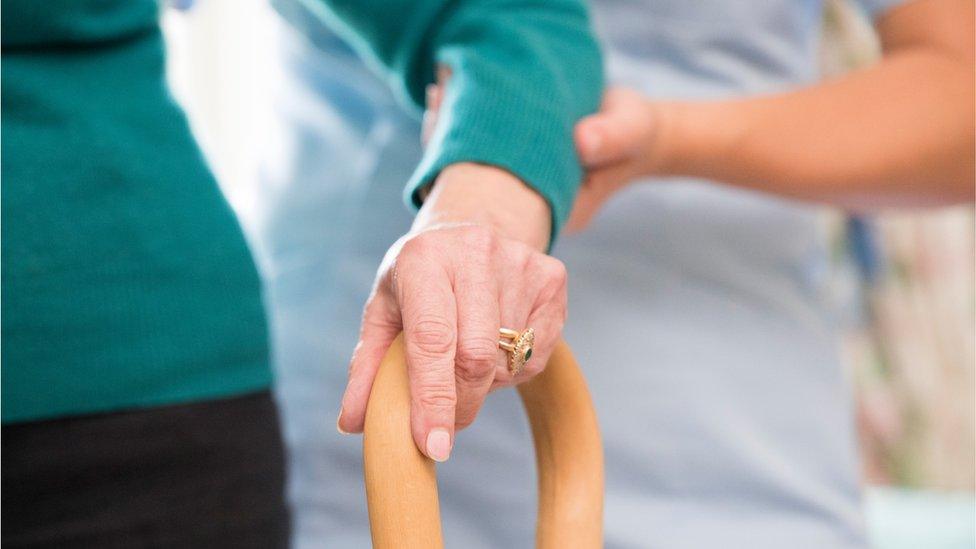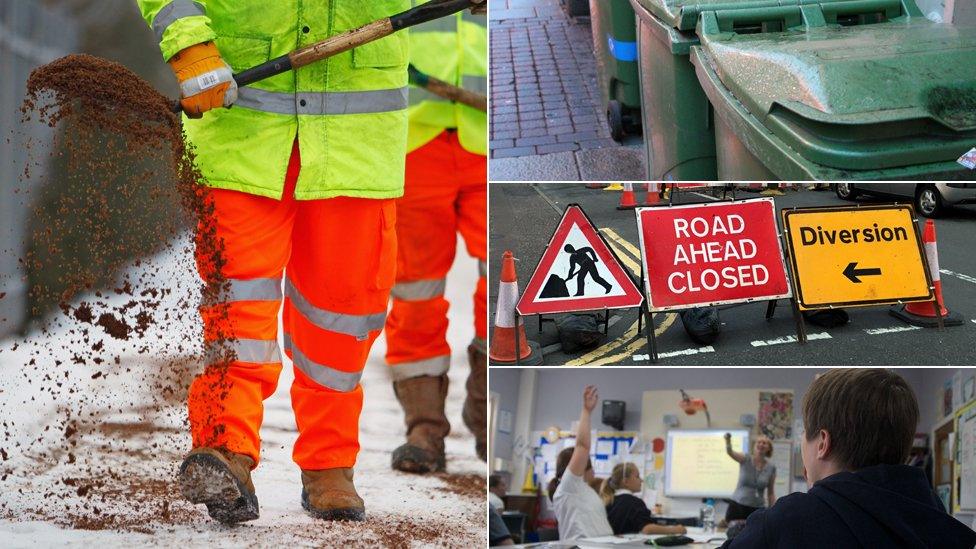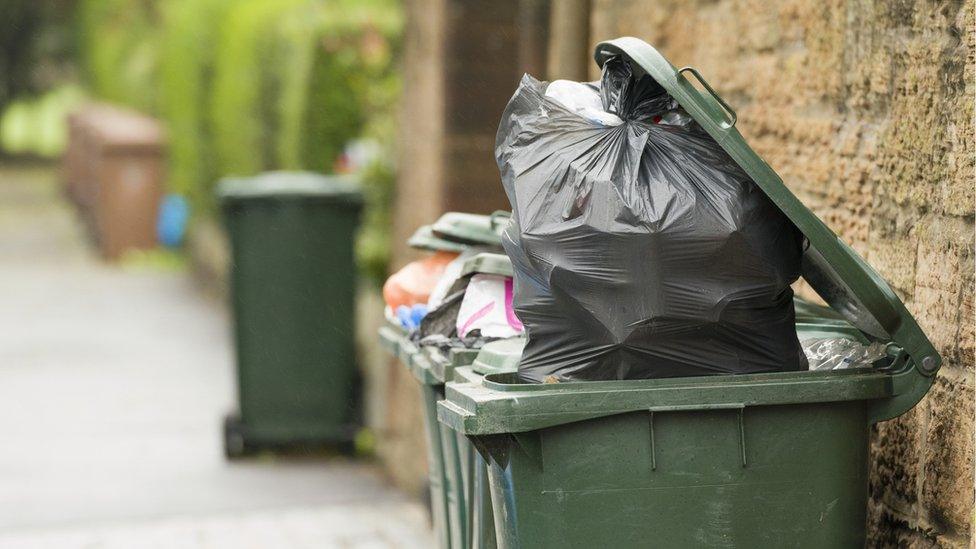Scottish councils 'need extra £1bn' to prevent further cuts
- Published
- comments

Social care workers offer a vital service for the elderly
Councils are calling for an extra billion pounds from the Scottish government to stop cuts to local services.
The local government umbrella body Cosla says the government must "invest in councils before it is too late".
It also says there should be no government-imposed limits on council tax rises.
The Scottish government says it has done its best for councils despite "UK government cuts".
Cosla says an extra £1bn of revenue funding would allow for new spending commitments, the impact of inflation and make up for cuts in previous years.
The council organisation wants councils to get more money from the Scottish government this year - and more powers to raise their own money in the longer term.
It argues that agreements with the government to work together on areas such as education, health and social care mean other "unprotected" services such as libraries and local roads and pavements have faced the brunt of cuts.
Unprotected services
Cosla resources spokeswoman Gail McGregor said: "Ringfencing and Scottish government-devised policy initiatives mean that more and more has to be delivered from an ever decreasing portion of local budgets.
"The reality is that services such as roads, buses, planning, community learning, events, sports facilities, libraries, tourism, business support and environmental health all sit unprotected.
"These services are what make our communities attractive places to live, work and visit."

The watchdog said councils have experienced a real terms funding drop over the last five years
Councils are still waiting to hear how much money they will get from the Scottish government in the coming financial year.
Councils and the Scottish government have both expressed concern about the implications of the delay in the UK government's budget until 11 March - which is also the day by which councils should have set their council tax rates for the coming year.
The UK Treasury says there is nothing to stop the Scottish Parliament from passing their budget before the UK budget.
Council tax rates
An HM Treasury spokesperson said: "We are working with the Scottish government as part of an agreed process to provide the information they need to prepare their budget.
"At the spending round, we announced that the Scottish government's block grant will increase by £1.2bn next year."
Individual local authorities usually decide on their budgets and council tax rates in February and some are currently holding consultations on spending options for the coming year.
A Scottish government spokesperson said: "Despite further cuts to the Scottish budget from the UK government, we have ensured our partners in local government receive a fair funding settlement - delivering a funding package of £11.2bn for all local authorities in 2019-20, which is a real terms increase of more than £310m."
"While ring-fenced funding is for increased investment in services such as our schools and nurseries, local authorities have complete autonomy to allocate over 92% - £10.3bn - of the funding we provide, plus all locally raised income.
"Decisions on budget allocations for future years are subject to the outcome of the current negotiations with Cosla. The results will be confirmed as part of the Budget in due course.
"The failure of the UK government to publish its budget at an earlier time means we do not have clarity on the funding available for our schools, hospitals and other vital public services. Despite this, we remain focused on introducing a Scottish budget for 2020-21 at the earliest practical opportunity, and are in discussions with Cosla on how we can support their budget process."

Local decisions, national funding

Councils are heavily dependent on the Scottish government for their money.
Some of that money is spent on policy objectives agreed with the government - for example education and health and social care - and they have enjoyed protection.
They could be described as examples of "national services which are delivered locally".
Other major sources of income include the council tax and business rates.
Cosla says national policy initiatives now account for 60% of council budgets - leaving less for those local services which are not protected by the government.
Cosla argues that areas of spending which are not protected by the government - including local roads and pavements, libraries and trading standards - have felt the brunt of the cuts and savings in recent years.
It says the government gave Scotland's 32 councils an extra £253m last year but councils also had to deliver £400m worth of new Scottish government commitments.
This led to a £147m reduction in the core budget for local government so led to cuts and savings in some other services.
Last year councils were allowed to increase the council tax by up to 4.8% - the original 3% limit was relaxed by the Scottish government in return for support from the Greens to pass the budget.
However many councils opted for smaller increases effectively foregoing some cash.
The public spending watchdog the Accounts Commission has previously highlighted how many local authorities have been using up their cash reserves.
Cosla argues there should be no centrally-imposed limit on council tax rises and that local authorities should be free to decide what rise is appropriate - councils would be accountable at local elections if they misjudged the situation.
This year councils will gain the power to raise money through a levy on workplace parking. So far, no council has confirmed it will use this power but some have ruled it out.
A consultation is also underway on the possibility of a charge on hotel bedrooms - dubbed a "tourist tax" by some.
In the longer term, Cosla argues councils should have a suite of powers like this and that each council should be free to decide what may or may not be right for its own area.
- Published17 December 2019

- Published29 November 2018
